On the banks along a stretch of the Columbia River between Oregon and Washington, Lana Jack brings supplies to Underwood, Lyle and Lone Pine. These are just a few of the fishing villages that make up homes of the Columbia River Indigenous peoples, who typically make their living fishing — an activity put on pause due to the coronavirus pandemic.
There was one death due to COVID-19 at Celilo Village, which shook the community. Among the other villages, there have been zero deaths or confirmed cases, and Jack’s relief efforts are aimed at keeping it that way.
In these villages, which often have just one common shower and kitchen area for several households, elders and community members with pre-existing health conditions are at greater risk with limited access to proper sanitization. On May 11, Street Roots accompanied Jack as she delivered masks, gloves, hand sanitizer, laundry detergent and plants to members of the Yakama, Umatilla, Warm Springs and Nez Perce tribes living along the river.
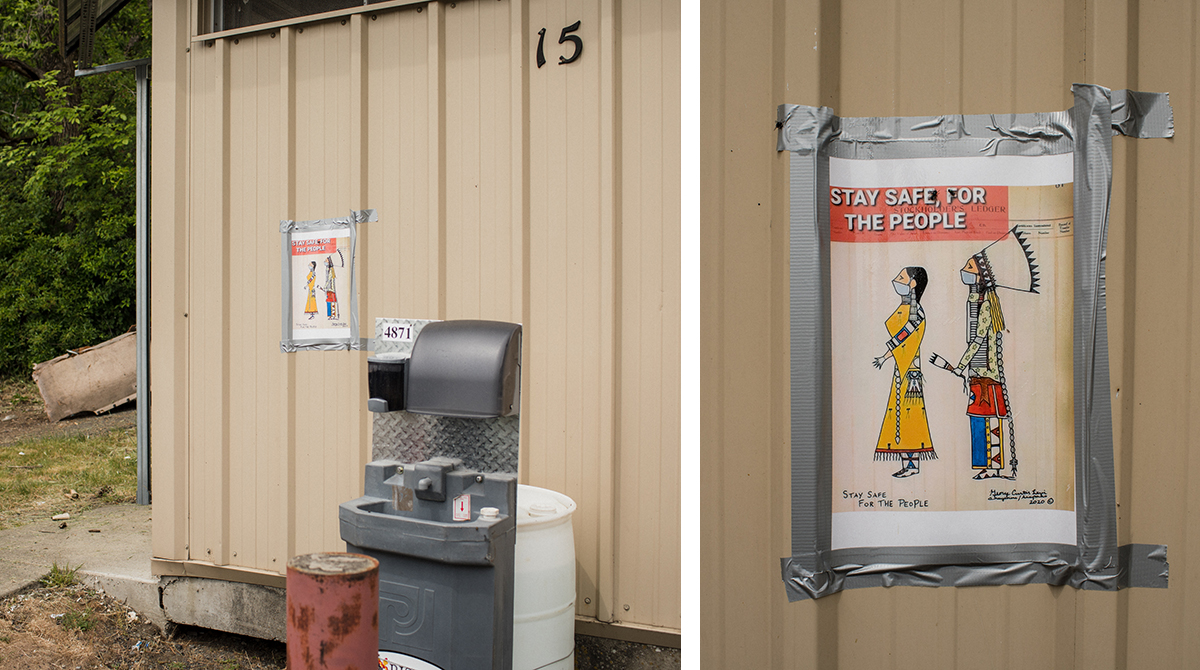
At the end of April, Jack launched a GoFundMe campaign for COVID-19 relief for the Columbia River Indigenous peoples, dedicating the funds to hand sanitizer, masks with filters, gloves and food cards. Although the $3,000 goal was met quickly, she has faced logistical hurdles and has not yet received the funds to redistribute.
Jack, who is Celilo Wyam, has been making daily trips to neighboring villages to drop off supplies during the pandemic, serving about 100 people.

“We are the echo of the water off the rock of the falls,” Jack said outside of the Bridge Mart in White Salmon, Wash. “We are survivors beyond every attempt to get rid of us.”
As soon as she receives donations, she’s out again to deliver them.
Jack led Street Roots through allotments of land designated for Native Americans. Our first stop was to see Chief Johnny Jackson at Underwood. Jackson, who is Yakama, received surgical masks and spoke with us about the experiences of his people.
At 89, Jackson has many thoughts about the world.
“I blame the government for modernizing the highway,” the chief said before recounting how his people were pushed away from the fishing villages.
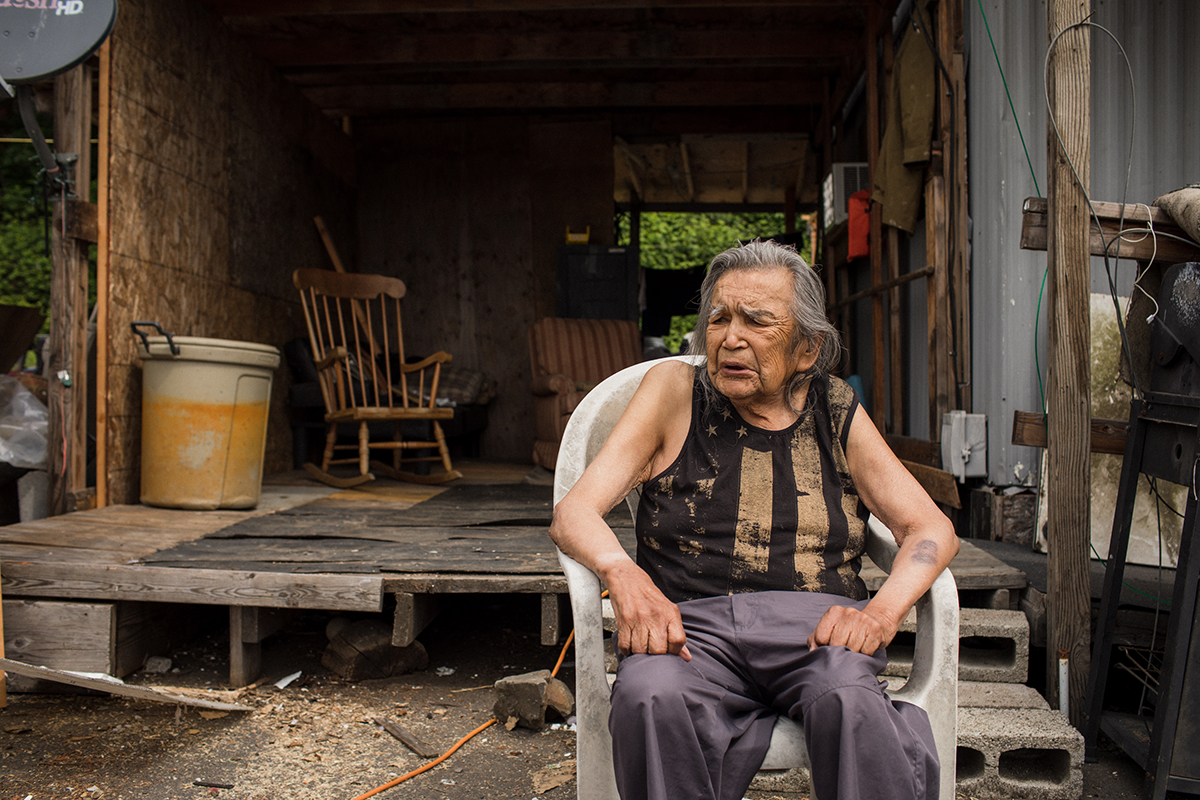
Sitting outside of a long gray trailer on the banks of the White Salmon River, the chief said the government told his people to stay away from the river during the 1920s and ’30s.
At issue then were Indigenous fishing methods using spears. Nets were wrong, he said.
“The white man wanted to make money, so our people walked to Warm Springs,” he said. “I watched my elders go to jail for catching a Steelhead.”
The chief shared how his people were once strong and powerful but now struggle to take care of each other. He bemoaned the overfishing of Chinook salmon and steelhead and the opening of bars and casinos, which resulted in drinking and disabling addictions.
Now, he said, he will settle for a good shower. Underwood is one of the few fishing villages without a functioning shower.
“It is very easy to dismiss my people as drunks and drug addicts,” Jack said back at the Bridge Mart. Ashlynn Sohaapy, Jack’s daughter, rides along in their nondescript Honda CRV. She often joins her mother while delivering supplies and has been in recovery for eight months, Jack said.
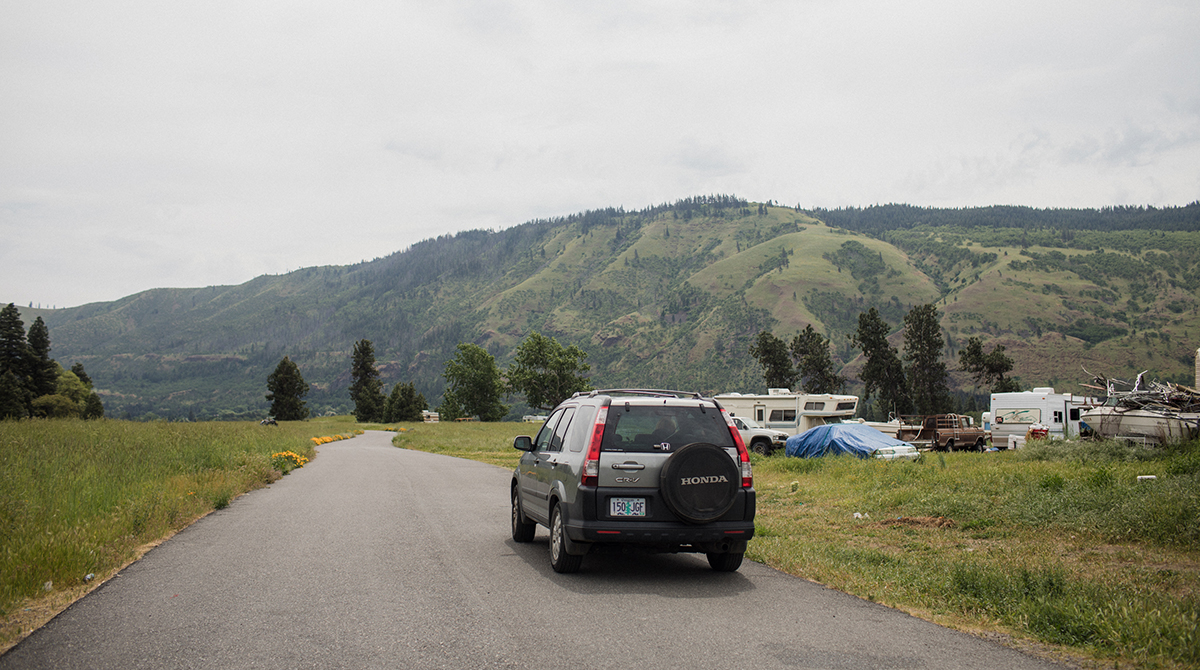
Jack gave us a small bundle of sage bush when we met and proceeded to take us on a tour of Native American treaty access sites along the Washington and Oregon banks of the Columbia River.
After visiting the chief, we headed east along the Washington side to Lyle Point, a grassy area sprinkled with camper homes, and where trucks and boats lay in apparent disuse. Karen Frank, 61, emerged from mobile home to greet Jack and Sohappy.
There were many dogs, with tails wagging as we approached.
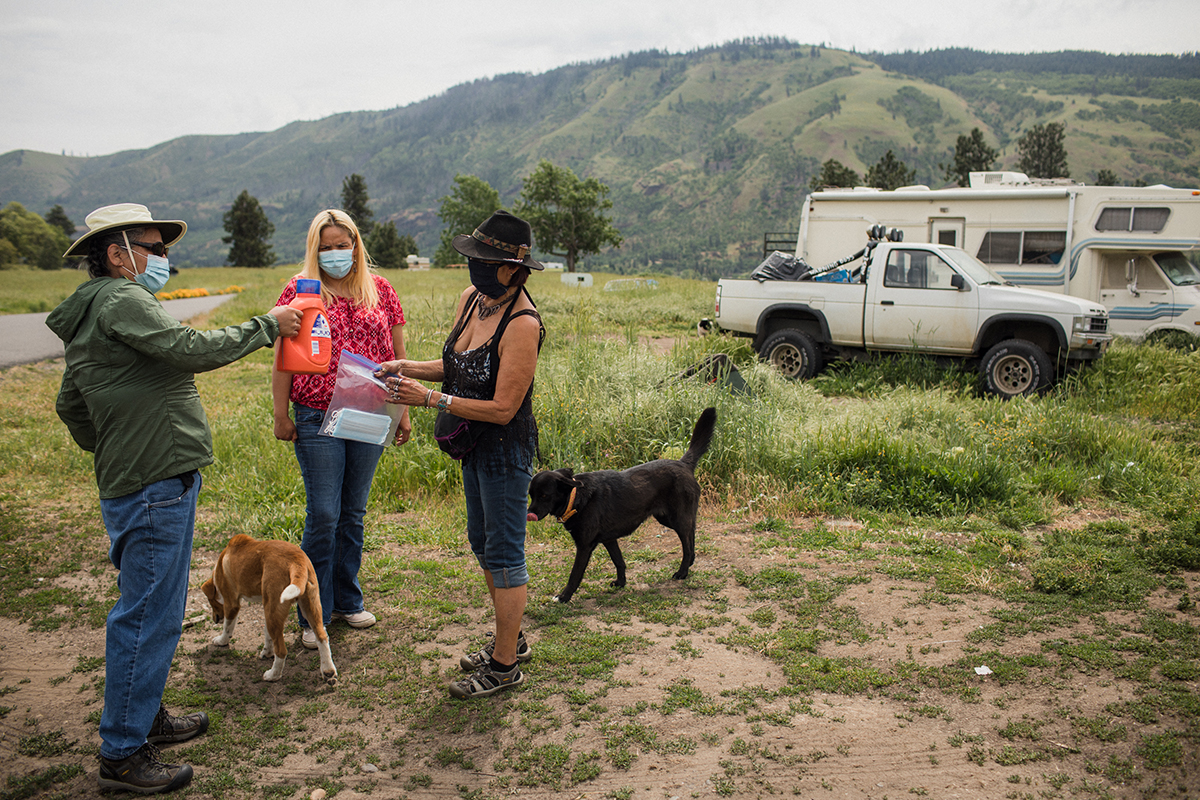
“I mostly stay in the house,” said Frank, a member of Warm Springs, when asked how the pandemic has affected her. She wore a cloth mask and petted the dogs as they ran around her. Frank was especially excited to receive the tomato and zucchini starts Jack delivered. She took us to one of the RVs on site where she’s growing herbs and her prized black irises.
Unlike Underwood, Lyle Point has a communal shower but no electricity. The closest grocery store has been closed for almost two months, so Frank now has to drive to White Salmon, The Dalles or Hood River for provisions. She said her immediate needs are water, propane and gas cards for their generator.
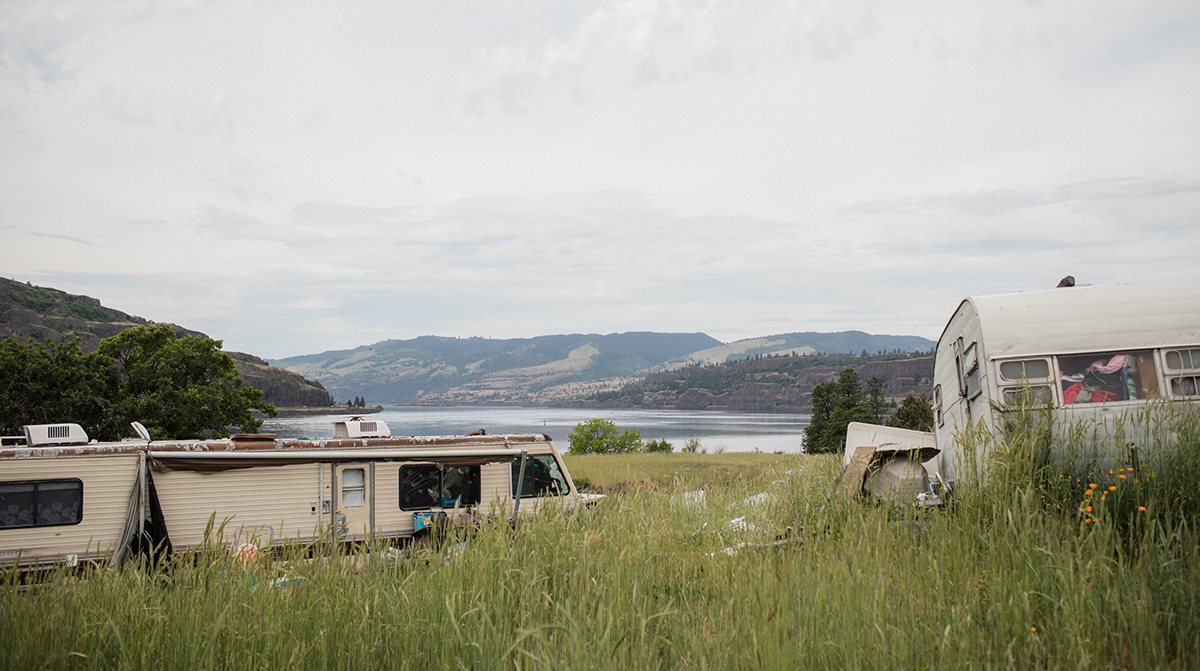
As Jack visited and delivered supplies, she gave gentle reminders to wear masks and use hand sanitizer often.
“We’ve been teaching people about practices behind sanitation with the gloves and face masks and hand sanitizer — having to use it incessantly. These are taught things, not a practice for them. I don’t know if they’ll catch on, but can’t not have hope” she said.
“We have paid a steep price for our ancestral land,” Jack said. “We should be honored, but we don’t get that. Society has basically written us off. We didn’t ask to be made to conform to this way of life.”
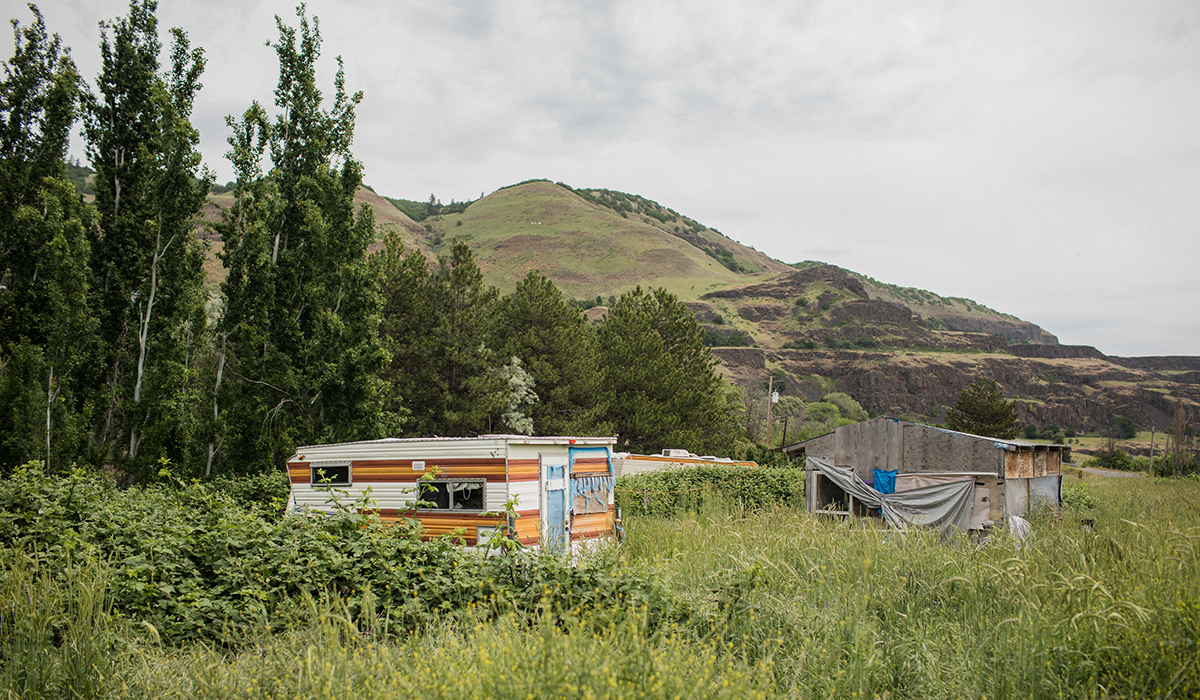
Jack’s delivery route made two more stops in Washington, where she dispensed more heirloom tomato and zucchini plants and personal protective equipment.
A woman named Martha appeared from one of the mobile homes and said she was enjoying the “quarantine life” with her 3-month-old puppy and was grateful for the visit from Jack. Martha lives on a piece of land with breathtaking views of the river. She recounted sharing the land with her community for fishing.
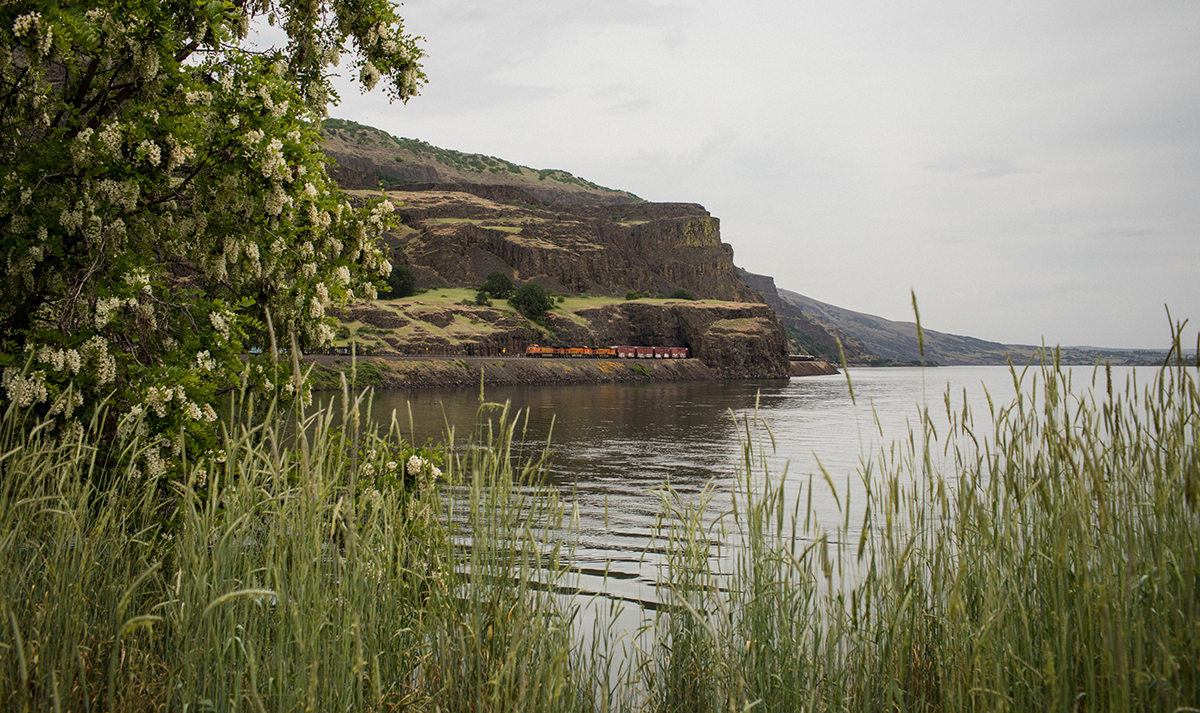
Our last stop brought us south of the river to Lone Pine, a village overlooking The Dalles Dam with fishing scaffolding dotted along the riverbank and the structural remains of a longhouse resting nearby. Children ran about.
The dam is one of the 10 largest hydropower dams in the United States, but across the river at Lone Pine, a resident loaded a car trunk with empty bottles to replenish their water supply.
We visited Eliza Wahchumweh’s home and fish shop, which closed in response to the pandemic. Rose bushes and raised beds endured among the dusty heat of the riverbank. Wahchumweh, a member of the Yakama tribe, has posters advocating for sanitation and social distancing to protect their elders and communities. The salmon season just started, but the shop remains closed until further notice.
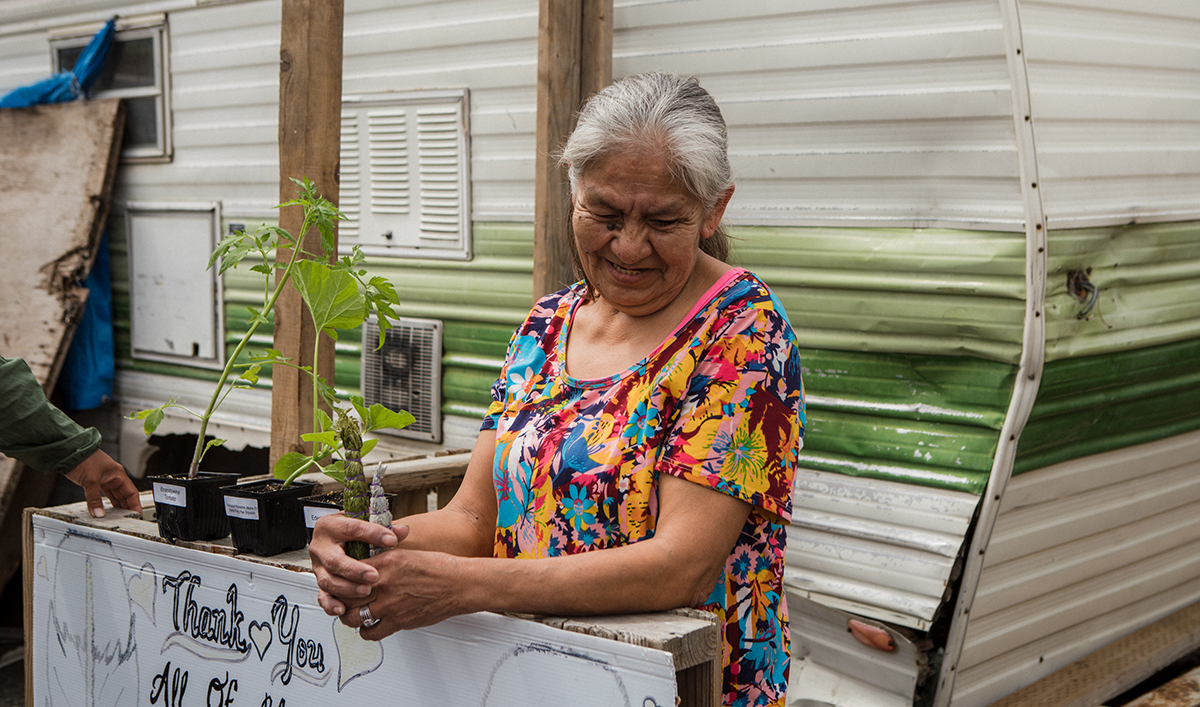
Electricity, water and food are needed here, Jack said. The garden beds are drying out.
“We deserve more,” she said, with a hint of anger in her voice. “A lot of our young people are seeking healing. We are not poor, drunk, lazy Indians. We are tired of being manipulated and stereotyped.”

While Jack waits for the GoFundMe money to be dispersed, she continues to collect donations and take supplies to the fishing villages as quickly as possible.
“With the state reopening, ultimately I can’t stop being concerned for them in the state of extreme poverty that they’re in with their lack of resources,” she said. “Anything we can get from the Portland area, even if it’s clothes, blankets, sheets, towels, hand soap, bleach, Lysol — anything that would help us fight being sick.
Jack is collecting donations and specifically requests sanitation supplies — masks, hand sanitizer, hand soap and gloves in every size, but she is also receiving food, clothes and other necessities.
“We’re saving lives,” she said.
HOW TO HELP
Monetary donations earmarked for the Indigenous communities can be made at Shepherd of the Valley Church in Hood River and may be tax deductible. Clean clothing and bedding items such as blankets, sleeping bags and pillows can be dropped off at Secure Storage, 1400 Tucker Road in Hood River, between 10 a.m. and 5 p.m. Monday through Friday. For Portland drop-offs of essential COVID-19 survival donations, email Cynthia Vogel at vogelizer@gmail.com. Email Lana Jack at wayamtama@yahoo.com for all other donations.


